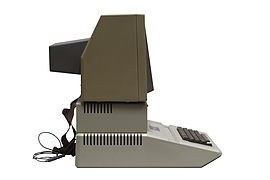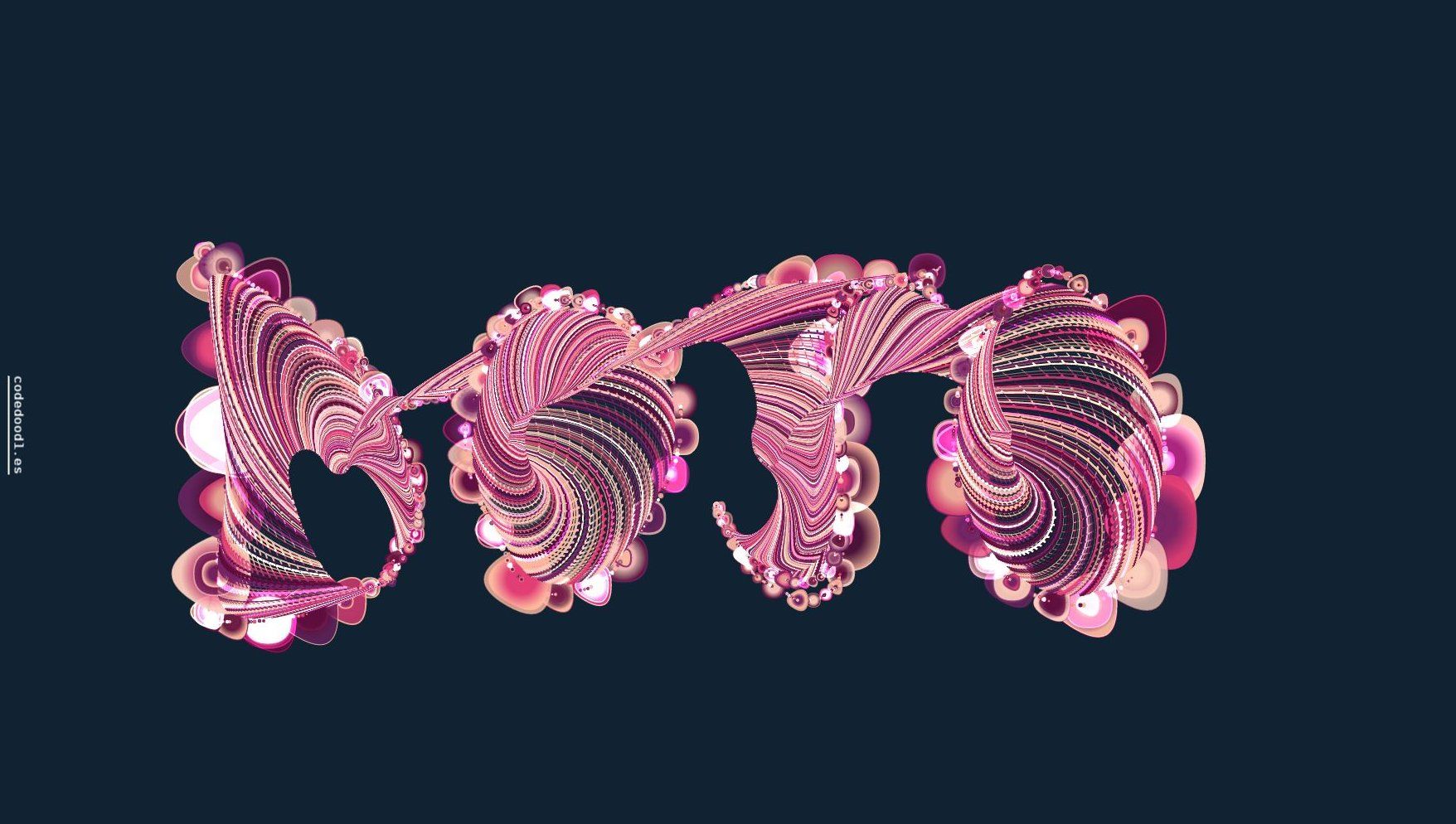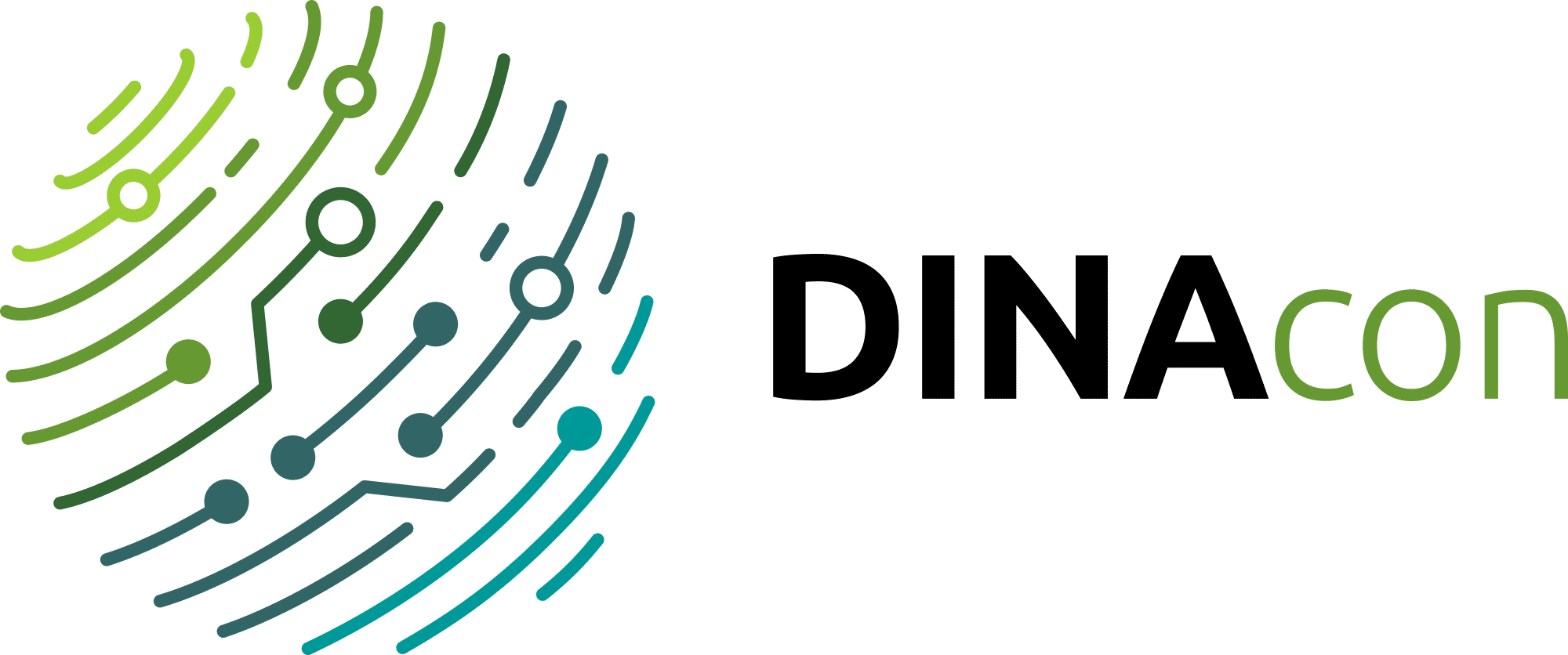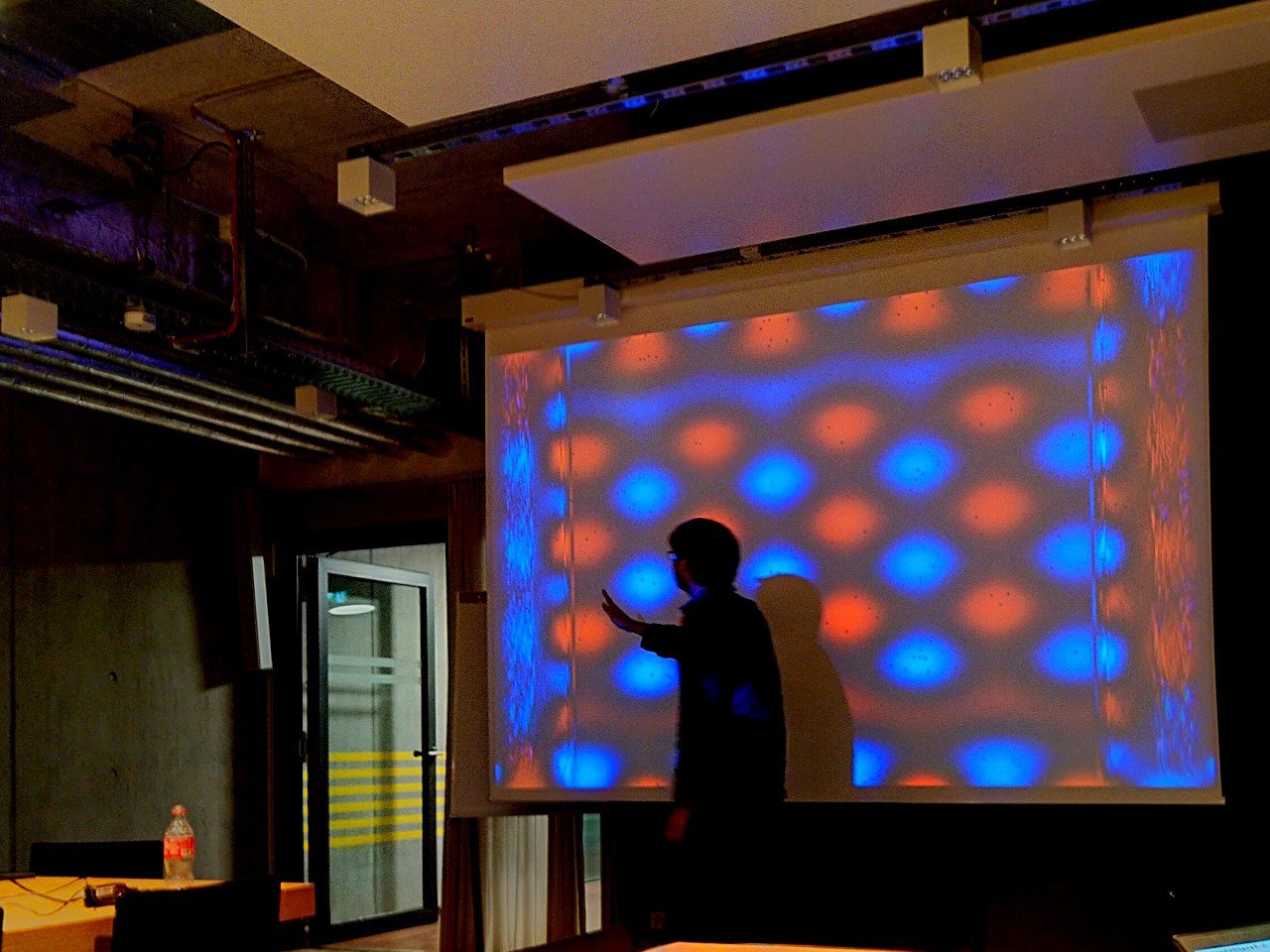All projects and challenges as of 24.01.2023 08:03.
Download as CSV file or Data Package.

Make real-time art
Because nothing says "party" like retro hardware
Image source: Apple II - Wikipedia
In the README below, you'll find the description of a classic demo made to run on an Apple II+ computer with a floppy drive. That's right, a floppy drive! While we didn't manage to get this particular demo to run in an emulator, we streamed demoscene music and a number of classic and modern productions during the HACKnight. This challenge on top of the visuals VJayed by ONEBUS on-stage at DINAcon, motivated a team to work on real-time effects in Processing.
See Sound-Vis-Field-Creatures, and a video of a second project on Vimeo:
{ hacknight challenges }
There is a long history of hacking the limits of modern and historic computer hardware for fun and aesthetic effect, which is incorporated by the global subculture of the demoscene. In Bern we are keeping this proud tradition alive through the Demonights, a regular meet-up in an underground lab (save the date: 15.11.19). We ran real-time content workshops to introduce people to making their own digital art and music. We are involved in conservation, support open platforms and their APIs. All this begs the question of what we can do to encourage open source efforts to help keep underground electronic art accessible to the next generation.
Bring the demoscene to the HACKnight by putting on some scene productions on your laptop or the beamer, tuning in to the music and art of the electronic underground. There are some introductions here and lots more to be found all around the 'net, for example: Teach Yourself Demoscene in 14 Days
Make some noise with a software synth, create some procedural art in code, tie it all together with a demotool. The HACKnight is a good excuse as any to doodle with generative tools. Check out our workshop post for some waypoints.
With a focus on the open source community, suggest what frameworks and tools we should support and promote in upcoming events. github/demoscene is a good starting point for this. Even better, share the code to your own production, even if it's a "party prod" (i.e. made on location). For inspiration, check out BIOCADE - a game prototype complete with sounds and graphics made at last year's HACKnight.

Open Collective
A new form of association, transparent by design
Sustainability is also about having the financial freedom to work on things that matter. Funding models are a topic of major interest to individual developers all the way to large OSS initiatives. OpenCollective was part of our conversation at DINAcon 2019, so during the HACKnight we created a new organization, learned the ropes, debated the approach, and contributed to a selection of open source projects.
While the Internet is a great tool for helping people collaborate, it is still extremely difficult for groups to collect funds and use them transparently. As a result, we see initiatives, projects, and movements popping up here and there only to disappear quickly due to lack of funds. Imagine how many wonderful things didn't happen because funding - which is arguably the oxygen for most organizations - is difficult to sustain. Without an easy way to raise and manage finances, most of the ideas that can change the world are rarely able to break open from seed, let alone grow into a full-fledged tree. Excerpt from About - Open Collective
{ hacknight challenges }
As a first step, go to opencollective.com and explore the platform. It's pretty intuitive, and there is good documentation (which could use translation help) to get started. See how contributions are tracked and visualized to create transparency in the development process.
Create an account, and see how you can support your favorite projects. Apply to join the new DINAcon Organization and help us incorporate crowdfunding into our digital sustainability events. If you are here at the HACKnight, ask us for a Gift Card.
Add your own organization or project to OpenCollective and let us know about it so we can add it to a short list (see also our Who's-who of Swiss GitHub challenge) of some kind in the future. Compare this platform to the OSS Directory and let's think about some potential improvements and bridges that we could propose to the //CH/Open association.
Learn about the open source platform behind the website itself, build something with the open API, contribute to the open issues.
QField
Portability of QField
QField is an open source mobile interface to QGIS available at qfield.org and on the Play Store. Our challenge for the HACKnight was to try to get QField to compile on Windows (#277) and iOS (see issue #122).
Exciting 💞 a port #QField to #iOS 🍏and #Windows 🖼️ challenge has been tackled at the @DINAconCH #hacknight by @twesterhuys👏👏👏
— QField📳🗺️ (@QFieldForQGIS) October 20, 2019
https://t.co/bz6lQWjNbZ
{ hacknight challenges }
Download QField and start using it.
Get QField to compile on and for your system.
Automate and standardize the building process for QField for iOS and Windows.
Sound-Vis-Field-Creatures
A sound visualizer using wave equations, and creatures following the waves
The boundary is influenced by the left and right microphones, the bulk field follows a discretization of the wave equation, there are creatures following the bulk field which bounce on the boundary and repel each other.
Challenges
A "No-Code" Editor
Apps for the rest of us
Hack the HACKnight
Let's make 3.14 great again!
Monitoring the Elections
Code for Switzerland as the country goes to the polls
Open Source Heros
Publish your code & wait for the octocats
Smart Use platform
Digitale Werkzeuge für die analoge Stadt


